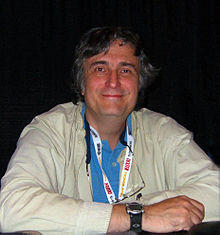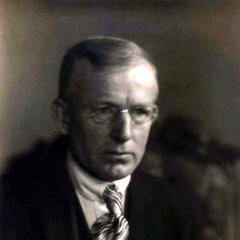William Hazlitt Quotes about Art

The art of life is to know how to enjoy a little and to endure very much.
William Hazlitt (1871). “The Round Table. A collection of Essays ... By W. H. and Leigh Hunt”, p.531
William Hazlitt (2015). “Delphi Collected Works of William Hazlitt (Illustrated)”, p.1471, Delphi Classics
Cunning is the art of concealing our own defects, and discovering other people's weaknesses.
William Hazlitt (1837). “Characteristics: in the manner of Rochefoucault's Maxims [by W. Hazlitt].”, p.42
'Sketches and Essays' (1839) 'On Taste'
The art of conversation is the art of hearing as well as of being heard.
William Hazlitt (2015). “Delphi Collected Works of William Hazlitt (Illustrated)”, p.2779, Delphi Classics
William Hazlitt (2015). “Delphi Collected Works of William Hazlitt (Illustrated)”, p.1319, Delphi Classics
William Hazlitt (2015). “Delphi Collected Works of William Hazlitt (Illustrated)”, p.1472, Delphi Classics
William Hazlitt (1817). “The Round Table: A Collection of Essays on Literature, Men and Manners”, p.36
"Table Talk: Essays On Men And Manners". Book by William Hazlitt. Chapter: "On Genius and Common Sense", 1822.
William Hazlitt (2015). “Delphi Collected Works of William Hazlitt (Illustrated)”, p.249, Delphi Classics
William Hazlitt (1821). “Table-talk: Or Original Essays”, p.37
William Hazlitt (1871). “The Round Table. A collection of Essays ... By W. H. and Leigh Hunt”, p.35
William Hazlitt (1837). “Characteristics: in the manner of Rochefoucault's Maxims [by W. Hazlitt].”
William Hazlitt (2015). “Delphi Collected Works of William Hazlitt (Illustrated)”, p.393, Delphi Classics
'The Round Table' (1817) 'On Manner'
William Hazlitt (1841). “Lectures on the English Comic Writers”, p.23
Art must anchor in nature, or it is the sport of every breath of folly.
William Hazlitt (1845). “Table Talk: Opinions on Books, Men, and Things”, p.250
'The Spirit of the Age' (1825) 'Mr Coleridge'
William Hazlitt (1817). “The Round Table: A Collection of Essays on Literature, Men and Manners”, p.36
William Hazlitt (2015). “Delphi Collected Works of William Hazlitt (Illustrated)”, p.261, Delphi Classics
William Hazlitt (2015). “Delphi Collected Works of William Hazlitt (Illustrated)”, p.1472, Delphi Classics
Taste is nothing but an enlarged capacity for receiving pleasure from works of imagination.
William Hazlitt (1852). “Men and manners: sketches and essays”, p.199






